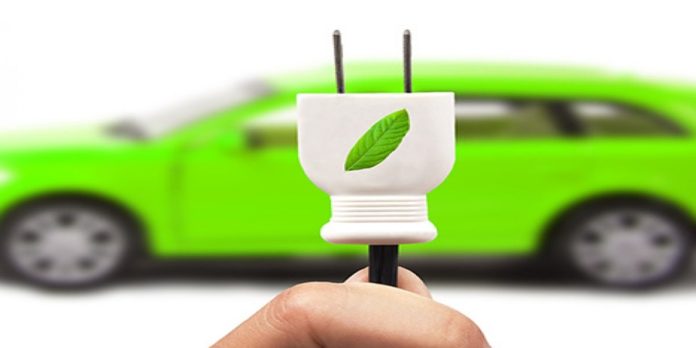The world faces serious environmental concerns that require immediate attention and progressive solutions. The human civilization is at a crossroads where every decision will either make or break us. Taking corrective measures by making eco-friendly choices and adopting sustainable ways and technologies to operate is crucial.
Environmental conservation and protection are vital aspects of the world today, and the global scientific community is working on solutions to address the escalating climate crisis. There is a growing focus on sustainable transportation, with increased investments in electric mobility.
The electric vehicle (EV) segment in the automotive industry is on the rise in India, accounting for approximately 5% of total vehicle sales. Startups are playing a crucial role in developing and enhancing EV infrastructure, and it is projected that by 2030, EVs could make up more than 40% of India’s automotive market. India’s journey with EVs has just begun, and the country’s ambitious decarbonization target by 2030 necessitates more rigorous action towards building sustainable value chains across its industrial ecosystem.
As the world prepares to celebrate World Environment Day on June 5, 2024, leveraging technology and science to address the climate crisis and related issues should remain our top priority.
Industry Speaks:
ELE Times spoke with technology leaders on the impact of EVs on climate change and the importance of World Environment Day from an EV industry perspective.

Manjula Girish, Business Head EV Charging and Photovoltaic Inverter Division, Delta Electronics India says-
“EVs are a transformative force in the fight against climate change. By significantly reducing greenhouse gas emissions compared to traditional combustion engines, EVs play a critical role in mitigating global warming. At Delta Electronics India, we are committed to advancing EV technology and infrastructure, contributing to a cleaner, more sustainable future. Our innovations in EV charging solutions are designed to support widespread adoption of electric mobility, further reducing our carbon footprint and fostering a healthier planet.
World Environment Day serves as a critical platform for the EV industry to showcase its commitment to a sustainable future. As the mission of EV industry synchronizes with the mission of World Environment day attributing to sustainability, emission reduction and the climate change It’s a day to celebrate the progress we’ve made in electrifying transportation and highlight the positive impact EVs can have on our planet. At Delta Electronics India, we see World Environment Day as an opportunity to raise awareness, inspire action, and accelerate the transition towards cleaner Transportation solutions.”

Akash Gupta, Co-Founder & CEO, Zypp Electric, says-
“EVs have a transformative impact on climate change, and Zypp Electric is leading this charge in India. As the country’s premier tech-enabled EV-as-a-Service platform, we are committed to achieving zero emissions and creating a carbon-free India. Our ecosystem of IoT and AI-enabled electric scooters, combined with strategically placed battery swapping stations, ensures efficient, low-maintenance, and high-performance last-mile delivery. This sustainable model not only lowers delivery costs but also significantly reduces urban pollution. With over 20,000 EVs and delivery pilots, we deliver packages in a manner that is both eco-friendly and cost-effective. By replacing traditional fuel-based vehicles, we are cutting down on greenhouse gas emissions and making cities cleaner and healthier. Through our innovative solutions, Zypp Electric is playing a crucial role in mitigating climate change and driving a greener future.
At Zypp Electric, World Environment Day isn’t just a celebration – it’s a call to action for the EV industry. Transportation is a major source of pollution, and EVs are the key to a cleaner future. This day highlights the urgency of tackling climate change. For the EV industry, it’s a chance to showcase the transformative power of electric mobility. We can raise awareness about the environmental benefits of EVs – reduced emissions, cleaner air, and quieter cities.
World Environment Day also unites stakeholders – policymakers, businesses, and citizens. It’s an opportunity to collaborate on building a robust EV ecosystem – from charging infrastructure to battery recycling. We are proud to be at the forefront of this revolution. Our sustainable last-mile delivery solutions demonstrate the positive impact EVs can have. On World Environment Day, let’s reiterate our commitment to a greener future, one electric mile at a time.”

Hyder Khan, CEO, Godawari Electric Motors, says-
“The transition to EVs plays a pivotal role in mitigating climate change. EVs produce zero tailpipe emissions, drastically reducing air pollutants compared to traditional internal combustion engine vehicles. This shift is crucial in decreasing the levels of greenhouse gases, primarily carbon dioxide, which are major contributors to global warming. Additionally, EVs align with renewable energy sources, further amplifying their positive environmental impact. When powered by electricity from renewable sources like wind, solar, and hydro, EVs can achieve near-zero emissions throughout their lifecycle. This integration supports global efforts to transition towards a more sustainable energy ecosystem.
At Godawari Electric Motors, we are committed to driving this transformation by producing efficient and affordable electric 2-wheelers and 3-wheelers. Our goal is to provide eco-friendly transportation options that contribute to cleaner air and a healthier planet, while also addressing the mobility needs of a growing population. Together, we can pave the way for a greener, more sustainable future. World Environment Day holds significant importance for the electric vehicle (EV) industry. It serves as a global platform to highlight the urgent need for sustainable practices and environmental stewardship, aligning perfectly with the core values and mission of the EV industry. This day emphasizes the critical role that EVs play in reducing greenhouse gas emissions, combating air pollution, and mitigating climate change. For companies like us (Godawari Electric Motors), World Environment Day is an opportunity to showcase our commitment to creating a greener future through innovative electric mobility solutions. It allows us to engage with consumers, policymakers, and stakeholders to raise awareness about the environmental benefits of EVs, such as reduced carbon footprints and decreased reliance on fossil fuels. Moreover, this day provides a platform to discuss advancements in EV technology, share success stories, and promote the adoption of electric Vehicles. By highlighting our efforts and the positive impact of EVs on the environment, we can inspire collective action towards a more sustainable and eco-friendly transportation landscape.”

Dinesh Arjun, Co-Founder and CEO, Raptee, says
“Electric vehicles (EVs) significantly reduce greenhouse gas emissions compared to conventional vehicles, directly addressing climate change. India’s long-term low-carbon development strategy underscores the need for an integrated, efficient, and inclusive transport system to achieve net zero by 2070. Given that transportation is the fastest-growing major contributor to global climate change, accounting for 23% of energy-related carbon dioxide emissions, World Environment Day is vital for the EV industry as it offers a promising solution. By replacing internal combustion engines with electric motors, EVs help decrease reliance on fossil fuels and minimize harmful emissions. It also highlights the urgent need for sustainable practices and raises awareness about the environmental benefits of electric vehicles. This day emphasizes the role of EVs in reducing greenhouse gas emissions and combating climate change, fostering collaboration, innovation, and public engagement to drive the transition towards a sustainable future”.








